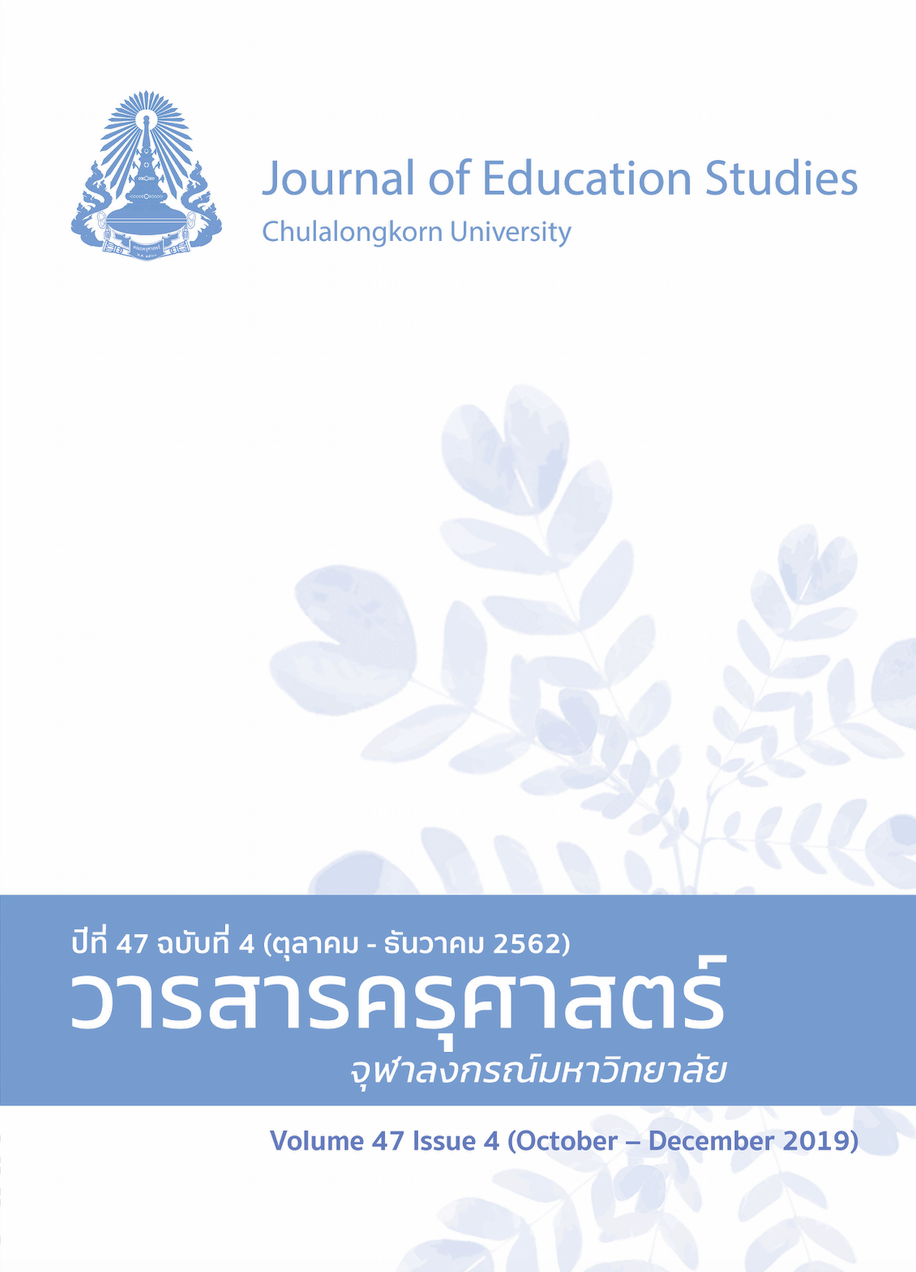Effects of Health Education Learning Mamagement Using Pprductivity-Based Instructional Model on Learning Achivement and Ability to Create Health Innovation Media of Tenth Grade Students
Keywords:
HEALTH EDUCATION LEARNING MANAGEMENT, PRODUCTIVITY-BASED INSTRUCTIONAL MODEL, CAPABILITY MEASUREMENT ON CREATING HEALTH INNOVATION MEDIAAbstract
This research aimed to 1) compare the average score of pre-test and post-test of students by learning achievement and the ability to create health innovation media of the experimental group students; 2) compare the average score of post-test of students by learning achievement and the ability to create health innovation media after the experiment. The sample were 66 tenth grade students of Bang Phae Pathom Pittaya School, 33 students learnt through the health education learning management using Productivity-based Instructional Model and other 33 students learnt through the normal health education. The research instruments consist of cognitive, affective and psychomotor achievement test, and the capability measurement on creating health innovation media. The data analyses used were the average score, the standard deviation, and the difference of mean scores would be tested by “t” score.
The results showed that 1) the mean scores of post-test of the leaning achievement of knowledge-based, attitude-based, practice-based of learning achievement test and the capability measurement on creating health innovation media of the experimental group students are significantly higher than Pre-Test scores of the experiment at .05; 2) the mean scores of Post-Test of the leaning achievement of knowledge-based, attitude-based, practice-based of learning achievement test and the capability measurement on creating health innovation media of the experimental group students are significantly higher than the control group at .05 level.
References
เชาวรินทร์ สีใหม่. (2552). ผลของการใช้รูปแบบการเรียนการสอนเชิงผลิตภาพที่มีต่อมโนทัศน์ทางธรณีวิทยาและความสามารถในการสร้างแบบจำลองของนักเรียนมัธยมศึกษาตอนต้น (วิทยานิพนธ์ปริญญามหาบัณฑิต). จุฬาลงกรณ์มหาวิทยาลัย, กรุงเทพมหานคร.
ดาว์พงษ์ รัตนสุวรรณ. (2559). การบรรยายพิเศษ เรื่อง “ประเทศไทยกับการก้าวไกลทางการศึกษา” ใน การประชุมวิชาการเครือข่ายสถาบันอุดมศึกษาเขตภาคกลางเพื่อพัฒนาบัณฑิตอุดมศึกษา ประจำปี 2559. สืบค้นจาก www.cabinet.thaigov.go.th/index.php/th/news-minitry/2012-08-15-09-39-20/item/106301
แทน ไพรสิงห์. (2558). ผลของการจัดการเรียนรู้วิชาสุขศึกษาโดยใช้รูปแบบการเรียนการสอนแบบตกผลึกที่มีต่อผลสัมฤทธิ์ทางการเรียนและความสามารถในการแก้ปัญหาของนักเรียนมัธยมศึกษาตอนปลาย (วิทยานิพนธ์ปริญญามหาบัณฑิต ไม่ได้ตีพิมพ์). จุฬาลงกรณ์มหาวิทยาลัย, กรุงเทพมหานคร.
ธัชกร สุวรรณจรัส. (2553). การพัฒนารูปแบบการจัดการความรู้ด้วยการเรียนจากประสบการณ์บนเครือข่ายเพื่อส่งเสริมความสามารถในการสร้างนวัตกรรมทางการศึกษาของครูสังกัดสำนักงานคณะกรรมการการศึกษาขั้นพื้นฐาน (วิทยานิพนธ์ปริญญาดุษฎีบัณฑิต ไม่ได้ตีพิมพ์). จุฬาลงกรณ์มหาวิทยาลัย, กรุงเทพมหานคร.
ไพฑูรย์ สินลารัตน์ และ คณะ. (2559). การศึกษา 4.0 เป็นยิ่งกว่าการศึกษา (พิมพ์ครั้งที่ 3). กรุงเทพมหานคร: โรงพิมพ์แห่งจุฬาลงกรณ์มหาวิทยาลัย.
รักษ์วรกิจ โภคาทร. (2553). นวัตกรรม: ความหมาย ประเภท และความสำคัญต่อการเป็นผู้ประกอบการ. วารสารบริหารธุรกิจ, 33(128), 49-65.
สุวิทย์ เมษอินทรี. (2559). ประเทศไทย 4.0 โมเดลพัฒนาเศรษฐกิจใหม่. สืบค้นจาก http://www.drborworn.com/articledetail.asp?id=16223
สำนักงานนวัตกรรมแห่งชาติ. (2542). นวัตกรรมเพื่อการพัฒนา. กรุงเทพมหานคร: สนช.
ภาษาอังกฤษ
Krasnova, H., Spiekermann, S., & Hildebrand, T. (2010). Online social networks: Why we disclose. Journal of Information Technology, 25(2), 109-125.
Omar, S. (2007). Classroom diversification: A strategic view of education productivity. Review of Educational Research, 77(1), 22–80.
Pavlik, J. V. (2007). Mapping the consequences of technology on public relations. NJ: Institute of Public Relations.
Safko, L., & Brake, D. (2009). The social media bible: Tactics, tools, and strategies for business success. Hoboken, NJ: Wiley & Sons.
Scoott, D. M. (2007). The new rules of marketing and PR. Hoboken, NJ: Wiley & Sons.




